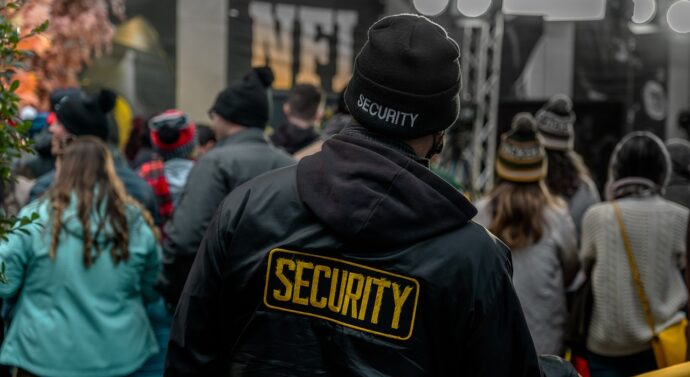
Interview with the new Director of Safety and Security for Drury University
Campus, Community, Feature October 22, 2024, Comments Off 120
Drury University started the 2024 fall semester with a brand-new face in a key position. Candy Cornman took the helm as the new director of safety and security for the campus.
Cornman is a former Missouri state trooper and Columbia police officer, who, after 25 years, decided to pursue security work at college. Her work started at Central Methodist University, transitioned to Stephens College where she would spend four years in the director position, and now to her present role.
“It’s kind of a natural progression,” she commented. “I was a school resource officer when I was a law enforcement officer, and I really enjoyed the interaction with students and the staff.”
Her time at Drury so far has been very busy with a lot of her time going towards authoring Drury’s annual Clery report. The Clery report is a 77-page PDF file containing information about various topics such as criminal offenses like sexual violence, assault and burglary, arrests and referrals made for disciplinary action and hate crimes.
The document not only abides by federal law but attempts to foster a value of open communication between students and staff.
In the “statement from the director” section, Cornman states “We believe that safety extends beyond just emergency response; it involves fostering a culture of awareness and cooperation. Our ongoing efforts include educational programs, safety drills, and open communication channels.”
The Clery report goes on to define what security officers do to ensure safety. This includes monitoring exterior lighting, checking door locks, ensuring that vegetation is trimmed, and patrolling parking lots and common areas.
It makes clear to students that Drury security cannot make arrests and must comply with the Springfield police department, which phone numbers can be used for specific types of emergencies, what to do if students feel sexually manipulated, and the various safety programs available such as free late-night vehicle escorts.
It also notes some other aspects of Cornman’s job such as giving safety presentations and expanding preventative measures against fires and theft.
With the Clery report’s October first deadline now behind her, Cornman now has time to further the development of two of her upcoming projects.
“We’re going to be working on a(n) (updated) policy manual that details what the security staff is required to do in their shift.”
However, what is first on her agenda is getting policy written and approved for Drury security to start wearing body cameras. Body cameras are small devices strapped to the security personnel’s chest that will capture video and audio in an attempt to capture inappropriate interactions.
The body cameras are completely new and have already been paid for.
Corman’s background in policing undoubtedly informs this decision, and she thinks it will take accountability in everyday interactions to a more respectable level. In her experience, body cameras help control both sides of the interaction.
“In the law enforcement realm … we noticed that the number of complaints and use of force complaints decreased because people then realized that they too were being recorded.”
She continued by saying, “And it’s a good, solid foundation … to represent that our officers aren’t doing some of the things that they have been accused of.”
Now, Cornman is focused on creating policy for the storage and correct usage of the body cameras, as well as a solution for storing and protecting the massive amounts of video that come from 24/7 campus security.
She aims to educate students in understanding that she knows there are going to be mistakes, and that Drury security will be there for those students during those tough times. It’s understandable that with this level of newfound independence can come some hardship.
As she put it, “Our goal really is to just make sure that we’re keeping the campus as safe as we can, so that our students get to enjoy the freedom of feeling like they still live at home but having the freedom that comes with not.”
The job she’s constantly working on is one of public image. Most freshmen already know her from her speech at orientation, but to everyone else, her background is relatively unknown. Her everyday actions have to be a positive force while still reinforcing her position as an authority figure and a leader.
To her, it’s important to humanize security and to dispel the myth of two sides at odds. “That’s a pretty common problem on a college campus.” She’s hopeful that she and her personnel can bridge that gap.
As for her in the director position, she just asks people to understand she doesn’t have the power to fix every issue. Furthermore, she challenges students to use a critical lens when examining problems, because some perceived issues aren’t there in the first place.
Image from Pixabay